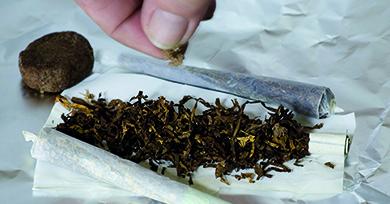Breadcrumb
- Home
- Search a publication
- Coffee-shops in the Netherlands: the Dutch toleran...
In Europe, France and the Netherlands both stand for opposite models of drug policies as far as public opinion is concerned.

The Dutch coffee-shops, in which any adult individual can obtain and use up to 5 grams of cannabis, symbolise such a dissimilarity. In France, for the same behaviour thousands of people are apprehended each year by the police.
A closer look at laws relating to drugs in both countries shows nevertheless quite a significant similarity. Though not dealing with the use issue, Dutch law penalises anyone possessing narcotics, including cannabis by-products, as French law does. The discrepancy between Dutch and French policies as regards cannabis can then be basically explained throughout differences observed within the enforcement of drug policies.
Cannabis free sale in coffee-shops proves indeed a kind of tolerance made official by the Prosecution circular letters yet not listed in official law.
How far does that "tolerance" for soft drugs go back in time? Why has such a situation been established? How is it presently made lawful?
Eventually what are the last legal evolutions likely to apply to coffee-shops? We suggest to answer these questions via the results of a survey carried out in 1999 and pertaining to Dutch drug policies. That research chiefly covers the recent alterations concerning that policy. We shall take up the main developments insofar as cannabis retail sale is concerned.